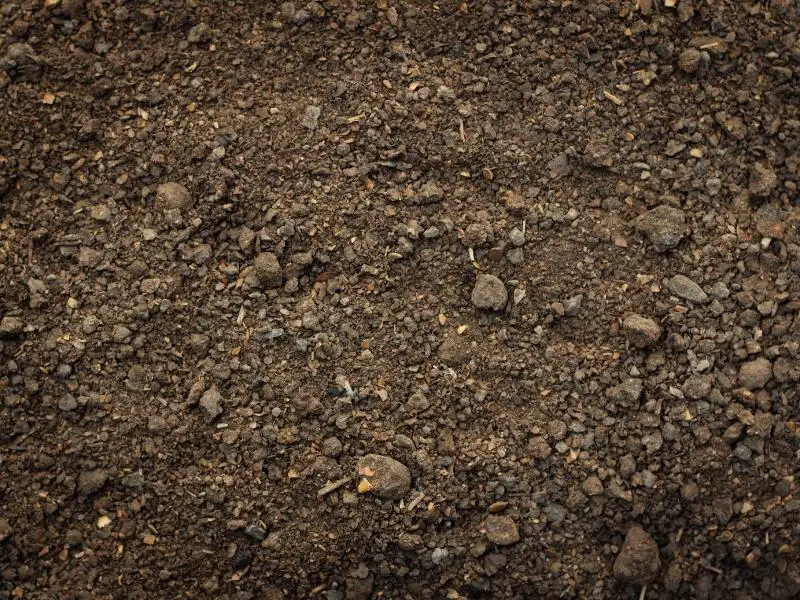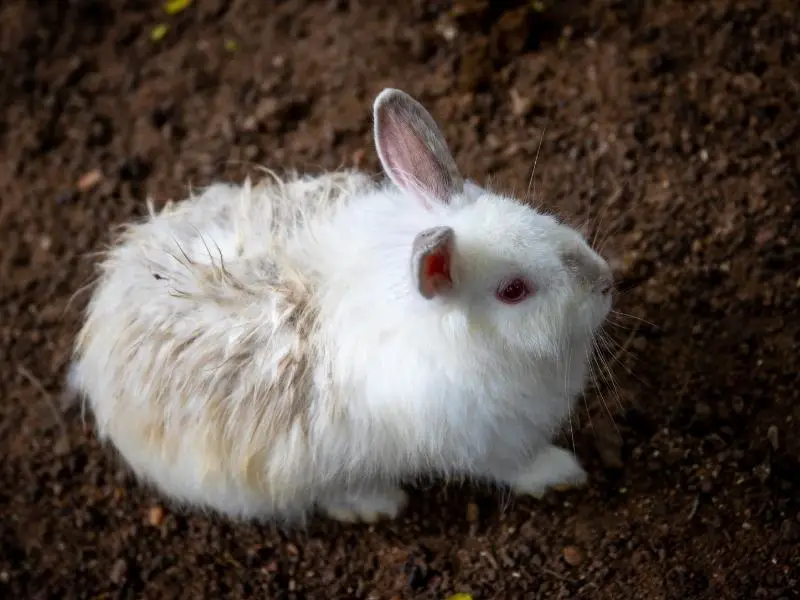Want your garden to grow super green and healthy and look just like the picture-perfect gardens you see in magazines and on the internet? Then you may want to consider adding rabbit poop.
Rabbit poop, also called bunny honey when used as a fertilizer, is rich in nitrogen, phosphorus, and potassium – ingredients that are essential for plants to grow. Rabbit poop is organic, odorless, and “cold” so you can use fresh rabbit poop or composted bunny honey for your garden and pots.
Here’s more information on rabbit poop as a fertilizer so you can learn about all the benefits.
Can I Put Rabbit Poop in My Garden?
Using rabbit poop as a fertilizer in your garden comes with many benefits. It is like a “miracle grow” because it is simple to use and nutrient-rich. Plants love rabbit manure.
Is Rabbit Poop and Pee Good for Plants?
Rabbit poop is an excellent choice for plants. Plus, one female rabbit and her litter (once they are 4 months and older) can make more than 1 ton of manure a year.
Using rabbit poop as a fertilizer improves the soil structure, moisture retention, and drainage. It also increases the life cycle of beneficial microorganisms in the soil.
In more detail, the benefits of using rabbit poop in your garden are:
- It’s organic and adds nitrogen, potassium, and phosphorus to the soil – these are essential for greener, healthier, and faster plant growth.
- Fresh rabbit manure contains 2% nitrogen, 1% phosphorous, and 1% potassium.
- Composted rabbit fertilizer has 2.4% nitrogen, 1.4% phosphorous, and 0.6% potassium.
- It has 4 times as many nutrients as cow or horse manure, and 2 times as many nutrients as chicken manure.
- Rabbit manure is “cold” so it doesn’t need to be composted, but can be. Horse, chicken, and cow manure needs to be composted before you can safely add it to your garden.
- It doesn’t burn plant roots when you use fresh rabbit manure.
- It’s great for earthworms, which improves the nutrient availability in soil.
- It’s easy to handle and odorless, so not pungent like other manures.
- Has trace elements of other minerals like calcium, boron, zinc, magnesium, manganese, copper, cobalt, sulfur, and more.
Ways to Use Rabbit Poop in Your Garden

There are a variety of ways you can use rabbit poop in your garden:
Worm Food
For a vermicompost or worm farm with red wigglers or red worms, you can add aged rabbit manure.
Don’t add fresh rabbit poop as the high nitrogen content and rabbit pee that is naturally mixed with the poop is poisonous for the worms.
So place the droppings in an area where the temperature is 130-150℉ for a couple of days. Remove excess salt by straining the mixture through the water.
When the mixture is ready, add some wood chips and straw that are high in carbon to help balance out the nitrogen. Then spread a thin layer of manure and carbon-rich organic matter over the worm beds.
Rabbit Manure Tea
To give your plants more nutrients, add rabbit manure tea or bunny brew to the plant water, only when your plant is growing.
Giving your plants bunny brew when the plant is ready to fruit will result in less fruit as your plant will simply grow bigger.
To make rabbit compost tea:
- In a large bucket/container, soak 2 cups of rabbit droppings in 5 gallons of water.
- Cover the mixture and place it in a warm sunny location.
- Stir it once daily.
- After 3-5 days, the rabbit poop will break down and settle at the bottom.
- Get an empty container and strain the mixture through a burlap sheet to strain out the solids.
- To use the bunny brew, dilute it until it is the color of the milkless black tea you drink.
- Water your plants, but don’t spray or pour the bunny brew directly on your plants.
For Transplanting
When you want to transplant or repot a plant, add rabbit poop to the new soil. The rabbit manure will give the plant roots a boost of nutrients, creating an ideal growing environment.
Direct Application
Sprinkle fresh rabbit poop around your garden, but not on any plants. The poop will gradually release its nutrients into the soil.
Composting
If you don’t want to add fresh rabbit manure to your garden, add it to your compost bin or pile. Add wood shavings and straw in equal amounts to the rabbit poop.
Mix in grass clippings, leaves, and kitchen scraps (like coffee ground and non-citrus produce).
Moisten the compost pile with a garden hose, but be sure not to soak it. Cover it with a tarp and mix it well every 2 weeks. Moisten the compost heap, and then cover it again so it can maintain humidity and heat.
The composting process can take a few months up to a year, but add earthworms and coffee grounds to speed up the process.
How Long Does Rabbit Poop Take to Break Down?
It takes about 3-5 days for the rabbit droppings to decompose.
How Much Rabbit Poop Can I Use for My Garden?
How much rabbit poo or bunny honey you use for your garden depends on the quality of the soil, whether you are using it for your garden or container gardening, and when you apply it to the soil.
For Your Existing Garden
For every 10 square feet of soil, apply 2.5-10 pounds of fresh or composted rabbit poop fertilizer. How much you use depends on the nutrient requirements of the plants you want to grow and the soil quality.
You can work the manure into the soil before planting or leave fresh manure on the soil. If you leave fresh manure on the soil, cover it with 2-4 inches of hay, dry leaves, or another organic mulch so the nutrients don’t wash away when it rains.
Flower and Vegetable Gardens
For flower and vegetable gardens, you want to ensure that any bacteria or parasites in the fresh rabbit manure are killed before you start planting.
In fall, add the fresh manure to the soil and then plant your veggies and flowers in spring. If you add fresh bunny honey to the soil, wait 120 days before harvesting leafy green crops like kale and spinach or 90 days before harvesting fruiting crops like zucchini or tomatoes.
Container Gardening
As a top dressing for your container gardening project, add a 0.5-1 inch layer of rabbit pellets around the plant but ensure the poop doesn’t touch the plant.
Adding bunny honey to potting mix improves how well the soil drains and its fertility. Add 1-2 handfuls of the pellets to a pot and mix it with the potting soil before planting.
The Final Bunny Honey
If you have a pet rabbit or are raising rabbits, you finally have a good use for all the rabbit droppings. Otherwise, you can buy bunny honey from rabbit farmers or prepackaged from garden centers.
Add the rabbit fertilizer to your vegetable garden, flower beds, or other plants in your front and backyard and see how they grow!
Related Articles:

